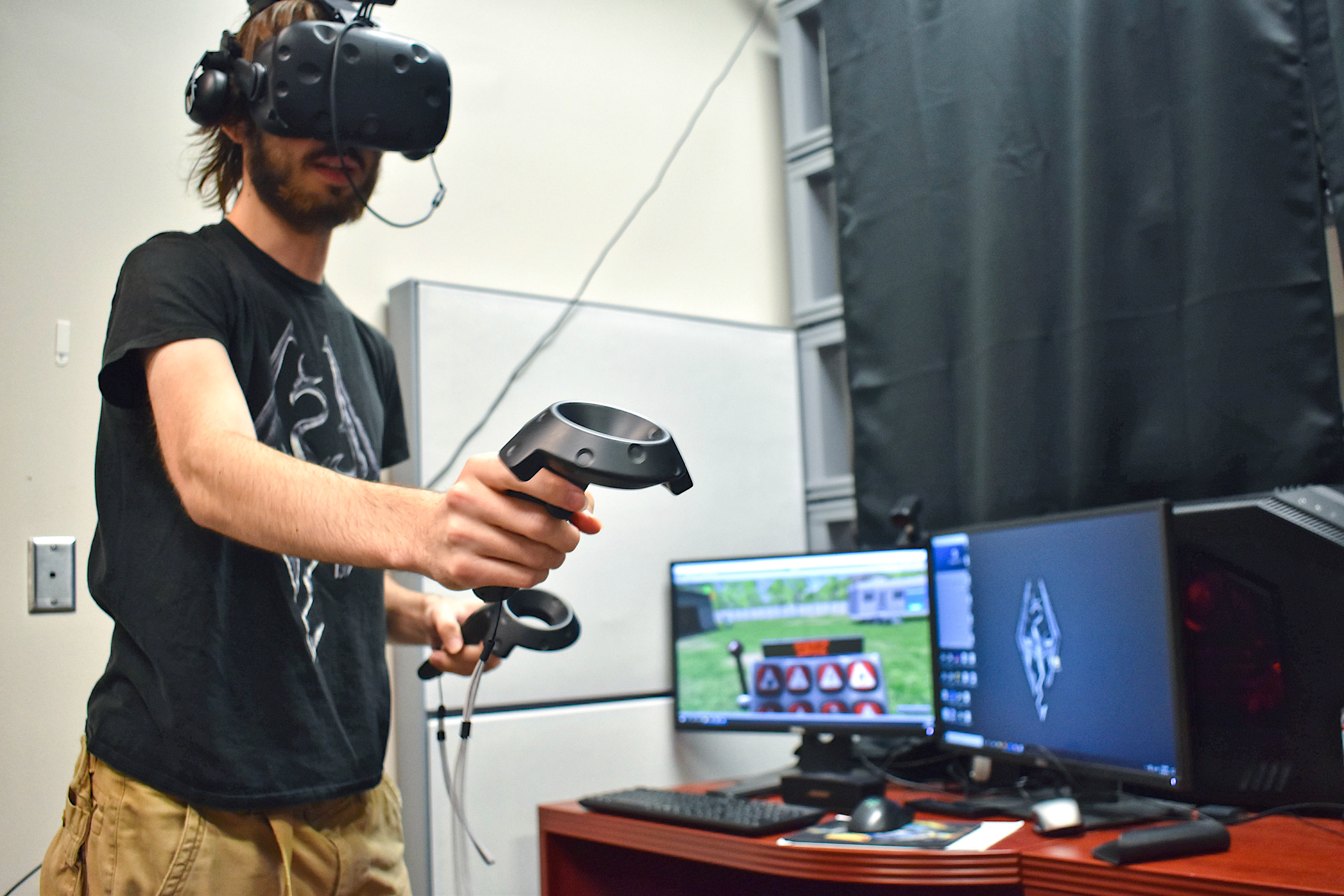Kennesaw State’s College of Computing and Software Engineering partnered with Florida-based firm Haskell to develop a new virtual reality training aid for its employees, announced in a KSU press release on Thursday, Sept. 12.
The project, known as the Hazard Elimination/Risk Oversight program, was originally conceived by Haskell’s corporate venture arm Dysruptek, according to KSU News.
The program brings the user into a virtual construction site with an abundance of potential workplace hazards. Within the site, the user interacts and uses the best practices as defined by corporate guidelines in order to rectify the site of such risks.
Conception of the program began when Hamzah Shanbari, manager of construction technology and innovation at Dysruptek, began work on the HERO program. He had previously created an educational video game to teach high-level construction management concepts as his doctoral dissertation, according to KSU News.
The program was briefly on hold until Director of Strategy and Technology and KSU alumni Cutler Knupp suggested reaching out to KSU’S CCSE to aide in completion of the program.
CCSE’s development team for the VR training aid consisted of KSU Assistant Professor of gaming Rongkai Guo and VR Software Developer Jaylin Gillam, as well as student assistants Luke Crowley and Michael Revit.

“It’s not to teach them what the hazards are on the worksite,” Revit said. “We’re testing their knowledge. At the end, the program shows a result screen the proctor can see what they did good at, what they did bad at, what they need to know and what they already do know.”
Student assistants Revit and Crowley were chosen to come on board the project after participating in an interview process and assisted with the programming aspects of HERO, Revit said.
“We had to program the functionality to be able to have a proctor and what needs to be enabled as well as saving configurations to the hard drive and being able to load it,” Revit said. “We also programmed the functionality of having a VR interaction of having a board displaying and letting you select whether it is a good or bad example.”
The HERO program was refined by the KSU’s development team over a six-month period and is currently in a testing phase, according to KSU News. There are plans for the program to be expanded upon and officially implemented in the near future, Revit said.
Haskell is a leading integrated design, engineering, construction and professional services firm. The Florida-based firm is a “global network of experts providing integrated design, engineering, construction and professional services to clients and communities,” according to its website.


